Citing historical, emotional and spiritual ties between their countries and the island of Haiti, various African nations, including Ghana and Senegal, have begun offering generous support to the victims of the devastating earthquake in Haiti that killed at least 150,000 people and rendered some 1 million homeless.
In a public statement just days after the earthquake, Ghanaian President John Evans Atta Mills expressed great empathy for Haiti, assuring them of Ghana's commitment to "make [a] modest contribution to bringing relief and succor to the people of Haiti who have suffered great loss."
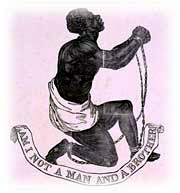 In a statement to the media, Mumuni said that, while Ghana seems far away from Haiti geographically, the extent of damage and number of deaths are too horrifying for Ghana to distance itself from.
In a statement to the media, Mumuni said that, while Ghana seems far away from Haiti geographically, the extent of damage and number of deaths are too horrifying for Ghana to distance itself from.
Ghana's relationship to the Caribbean dates back over 400 years ago to the transatlantic slave trade when Sub-Saharan Africans were forcibly uprooted from their homeland.
In 1964, the Ghana Caribbean Association was founded in Accra, Ghana to help forge closer links between Ghanaians and Caribbean individuals. Its objectives - to foster, preserve, and expand cultural and social links between the two nations; to encourage the interchange between cultural groups and educational institutions in the two areas; and to create a better understanding among the youth of the two areas through such means as competitions. The association also assists in providing hospitality for visitors from Ghana to the Caribbean and from the Caribbean to Ghana.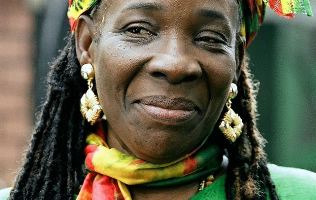
While alive, Jamaican-born reggae musician Robert Nestor Marley was known as a force for uniting warring factions, and as a Rastafarian - for him - thoughts of Africa ran deep.
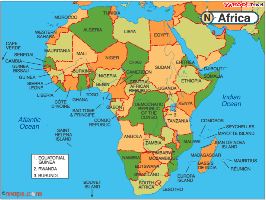 Still, many other African countries have also joined the international community to donate cash and relief items to the disaster in Haiti.
Still, many other African countries have also joined the international community to donate cash and relief items to the disaster in Haiti.
Equatorial Guinea has pledged US$2 million in emergency earthquake relief.
Guinean President Teodoro Obiang Nguema Mbasogo said in a written statement: "Although our two countries are separated by an ocean, Equatorial Guinea stands with the victims in Haiti in this time of distress and chaos."
According to the statement, the funds pledged by the Equatorial Guinean government, like those of many other foreign governments, are being transmitted to Haiti through the help of the United Nations.
Mauritius, the island off the continent's east coast, pledged almost half a million dollars. The city council of Beau-Bassin-Rose Hill, which is the country's second largest city, held a TV charity event on Jan. 29 to collect donations for Haiti.
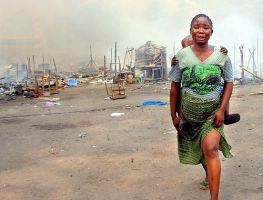 Since some of these nations are labeled developing countries themselves, many of their citizens have criticized the decisions to offer aid.
Since some of these nations are labeled developing countries themselves, many of their citizens have criticized the decisions to offer aid.
The Democratic Republic of Congo, where war wages in its eastern region, depends on foreign aid and its civil servants are paid sporadically. Still, the country is sending US$2.5 million in emergency aid.
In an interview with the BBC, the DRC Information Minister Lambert Mende explained that DRC is "not bankrupt and that DRC's problems should not prevent her from helping a brother country."
However, Ntanda Nkere, a political scientist from the University of Kinshasa told the BBC: "It's a contradiction to see a country which is facing serious financial problems giving away $2.5m but at the same time, it's a purely diplomatic reaction, the Congolese government wants to appear like any other government."
Many claim it was a response to the generous offer extended by President Abdoulaye Wade of Senegal on Jan. 17 who said he would offer free land to any Haitian who wanted to "return" to Africa.
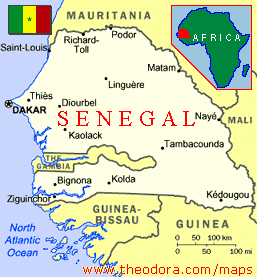 "Senegal is ready to offer them parcels of land - even an entire region. It all depends on how many Haitians come," said Mamadou Bemba Ndiaye, Wade's spokesman. "If it's just a few individuals, then we will likely offer them housing or small pieces of land. If they come en masse we are ready to give them a region."
"Senegal is ready to offer them parcels of land - even an entire region. It all depends on how many Haitians come," said Mamadou Bemba Ndiaye, Wade's spokesman. "If it's just a few individuals, then we will likely offer them housing or small pieces of land. If they come en masse we are ready to give them a region."
If a region is given, Ndiaye told The Associated Press, it would be in a fertile part of the country rather than in its parched deserts.
DRC's information minister has also said their government would not reject any Haitians who want to relocate to their country.
The non-governmental sector in Africa has also pledged their support.
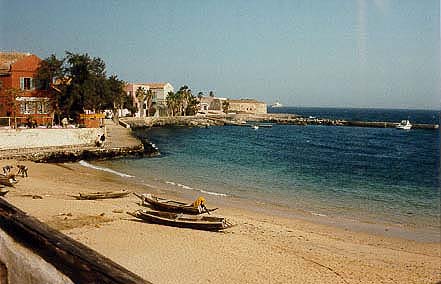 South African non-governmental organization Gift of Givers commissioned two search-and-rescue teams on the ground in Haiti working to rescue survivors. Gift of Givers has collected over US$600,000 in emergency supplies for Haiti and its 10-member team arrived on the island on January 17 and on 20. Other South African NGOs such as the Red Cross and Salvation Army have also launched nationwide appeals for US$4 million in emergency aid.
South African non-governmental organization Gift of Givers commissioned two search-and-rescue teams on the ground in Haiti working to rescue survivors. Gift of Givers has collected over US$600,000 in emergency supplies for Haiti and its 10-member team arrived on the island on January 17 and on 20. Other South African NGOs such as the Red Cross and Salvation Army have also launched nationwide appeals for US$4 million in emergency aid.
Members of the Miracle Life Family Church (MLFC) in Lusaka, Zambia have raised money which has been wired to another Christian organization currently assisting victims of Haiti.
According to the Senior Pastor of MLFC, Reverend Walker Schurz, the offering was prompted by a church member who wondered if the church would do anything about the Haiti crisis or simply leave it to the first world nations to deal with it.

